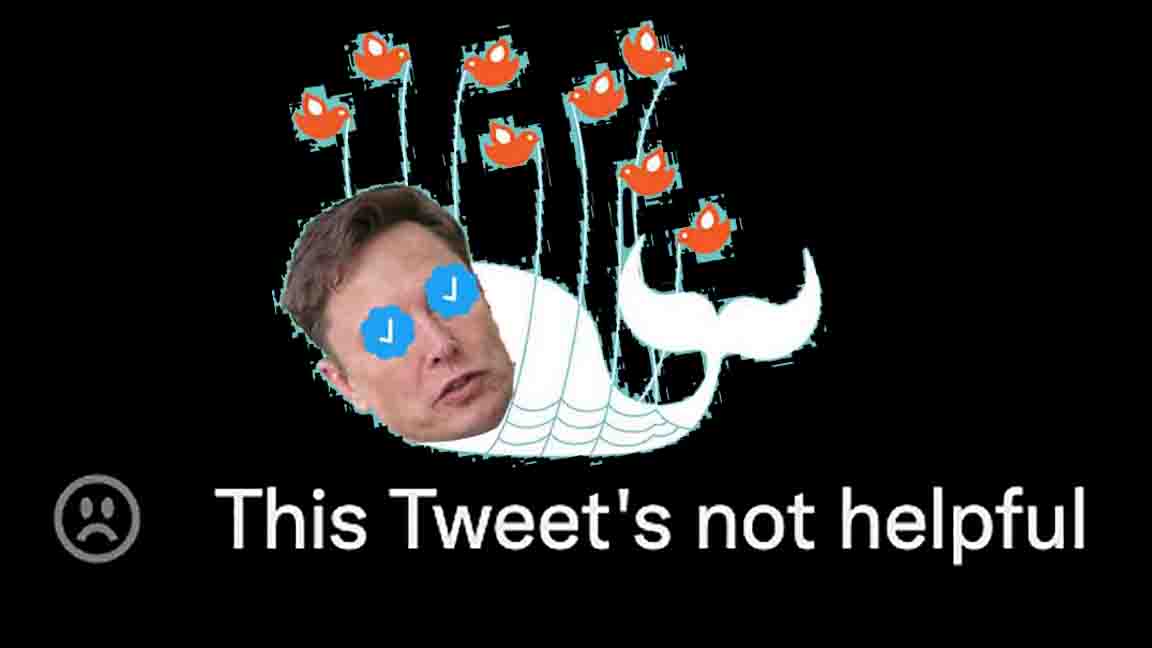THE TRICK OF BIG Tech has always been to sell your life as if they’d owned it to begin with. Instagram would be nothing without photographs of your cat; TikTok is nothing until you and your friends dance or make one-pot spaghetti or put on makeup for the camera. And Twitter is nothing unless a bunch of smart, amusing people go hang out there. It’s the people, not the place, that make for a “public square.”
By now it’s clear that by accident or design, and at breakneck speed, Elon Musk has driven off an enormous number of the people who once made Twitter fun to visit. The platform has been hijacked not only by Musk, but by hordes of his racist, sexist, homophobic, and/or fascist friends on the far right. Almost overnight the discourse on Twitter coarsened, and it has been growing uglier, more threatening, and less enlightening hour by hour.
High-profile defectors like Jelani Cobb—whose excellent piece about leaving Twitter appeared in the New Yorker over the weekend—shine a light on the point Musk seems to have forgotten, though advertisers have not; “free speech” includes the freedom to leave a worthless conversation entirely.
Cobb worries that Mastodon, where he surfaced recently, may not have the same global reach that Twitter does, but I think he’s wrong. What Cobb himself is bringing to Mastodon, and/or to other alternative social media platforms he may join in future, is his own invaluable nexus of community. In just one week he has attracted more than 3,000 followers on Mastodon; how long did it take him to find that many followers from the time he joined Twitter, fourteen years ago? What will his Mastodon account look like six months from now?
We’re each of us network nodes, each a locus of communities, sympathies and attention, and these have the potential to link up with colossal speed and power, in the right circumstances.
I don’t deny that at present, Mastodon is a little clunky to use in comparison with the sleekly seductive gingerbread houses confected to lure you in by corporate monopolists.
(Please note: for the moment, depending on what server/app you use, you can’t always just type someone’s name in the search box at Mastodon and follow them, the way you usually could at Twitter. Nor can you always paste in the version of their Mastodon handle that Mastodon itself tells you to paste. BUT. Once you know someone’s actual Mastodon address, e.g. @maria@thelife.boats, you can always type that address in the search box and follow them just fine. And pretty soon, your Home feed will look just like your Twitter feed used to.)
As Twitter’s former “head of trust and safety,” Yoel Roth is one of the highest-profile executives to quit the company since Musk took over. In a New York Times op-ed last week, Roth noted that policies at companies like Twitter are shaped by the preferences of “a small group of predominantly American tech executives.” He wasn’t arguing on behalf of a decentralized model for social media, like the one in use at Mastodon, and yet: of all the arguments for the decentralized model, Roth’s is the very best. “In appointing himself ‘chief twit,’” he wrote, “Mr. Musk has made clear that at the end of the day, he’ll be the one calling the shots.”
This potential vulnerability will be equally present in any conventionally run successor to Twitter. Internet history is strewn with the carcasses of once-great communities bought and/or destroyed by monopolists and opportunists eager to wring money and/or market control and influence out of them.
The key point in Mastodon’s favor is that it can’t be taken over as easily as Twitter was, because there’s no central point of control for whatever pathetic needy zillionaire to come in and grab. Each “instance,” or server, runs its own copy of Mastodon’s open-source software, and that software can be copied, altered, and taken elsewhere. In the unlikely event that some gross jerk were to barge in and take over the company that maintains Mastodon’s software—which is currently owned and operated by Mastodon’s inventor, Eugen Rochko—those who disagree with changes to the software can refuse to run it, maintaining their own versions somewhere else instead. For this reason, a conventional takeover is impossible.
Ideally, the people who gather there should be in charge of the square, and decide how it should be run. The good news is that this is not only possible, it is maybe even happening.
p.s. with Movetodon.org, you can instantly find and autofollow all your Twitter people on Masto.
Correction 27 November: This post originally said that you can’t just search on someone’s name to find and follow them. It is possible to search on people’s names, in limited circumstances, depending on what Masto client you use. We apologize for the error.
Thank you for reading POPULA! Add your email here to receive our newsletter






